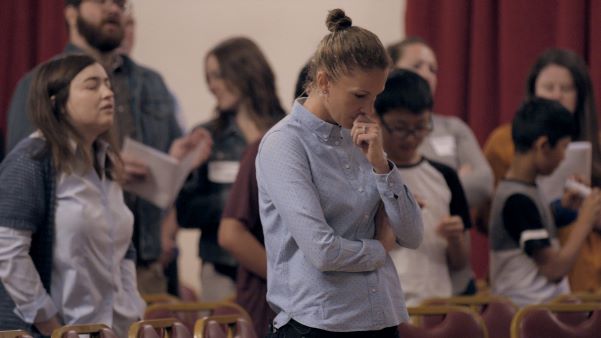

This solemn, powerful documentary reflects on the ramifications of the “ex-gay” movement, which believes homosexuality is an illness that could be cured. Director Kristine Stolakis catches up with ex-leaders of Exodus International, a leading Christian anti-gay organization that operated for almost four decades. Most of the interviewees once championed the idea homosexuals could change their sexual orientations, though despite what they publicly said, they themselves never got over their attraction to persons of the same gender.
Among the cross section is John Paulk, a former Exodus mouthpiece who appeared on television talk shows, and Yvette Cantu Schneider, an ex-political spokesperson for the right-leaning Family Research Council. Both claimed to have successfully quit what they called the “homosexual lifestyle,” but as the film cuts back and forth between archived footage and the present, it’s clear that didn’t stick. The night and day differences between the subjects’ past and current selves are compelling; Paulk seems much more relaxed now, while Cantu Schneider has an air of introspectiveness.
Another Exodus ex-speaker, Julie Rodgers, grew up a devout Christian and was pushed into an ex-gay program by her family after coming out as a teenager. From her first-hand account of her time at Exodus, we learn just how damaging conversion therapy was to the psyches of countless gay youths. The film, however, wisely avoids dramatic re-creation and leverages Rodgers’s charismatic presence instead, opting to let her simply recall what it was like to go through the emotional abuse of conversion therapy. While Rodgers has found domestic stability, the scars of the past haven’t gone away completely. (Indeed, one of her most powerful scenes involves reciting an essay she has written about self-harm, and based on her cadence, she is still processing that period of her life.)
A good deal of the film consists of talking heads—at least one of whom was an Exodus founder, Michael Bussee—discrediting the pseudoscience that the ex-gay movement pushed. Stolakis also shines a light on how the movement was fueled by the most cynical of calculations made by right-wing political groups, which demonized gays to raise money and consolidate political power. Their efforts to make one’s sexual orientation appear optional led to some truly repugnant televised moments, including Paulk and Cantu Schneider comparing homosexuality with pedophilia and bestiality. This footage also includes the curious spectacle of Paulk and his then-wife, a fellow Exodus member and reportedly reformed lesbian, Anne Paulk, with whom he shared an unconvincing chemistry at best.
To the film’s credit, Stolakis gives Paulk and Cantu Schneider space to explain the various factors that led them to the movement; they were possibly the victims of Christian dogma or suffered from a kind of PTSD due to the AIDS crisis. This is not to say that the film lets them off the hook completely—the director confronts Paulk and Cantu Schneider point-blank about their past actions and gets answers—but the film argues they were never just opportunists.
Pray Away’s framing device centers on Jeffrey McCall, a former transgender woman who has taken up Exodus’s line of work with zeal—at one point, he advises a trusting mother to stand by her fundamental religious beliefs about homosexuality, even if it tears her family apart. Though he’s a mesmerizing presence, the air of mystery about McCall lends a sense of foreboding to every scene he appears in, which is, perhaps, apt. While the film harkens back to events that happened some time ago, it also reminds us that the damage committed by the anti-gay movement continues to be perpetuated.

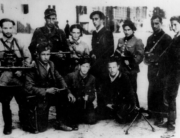
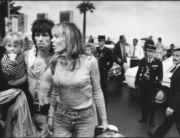
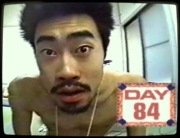
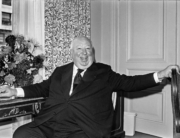
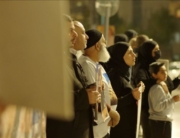
Leave A Comment